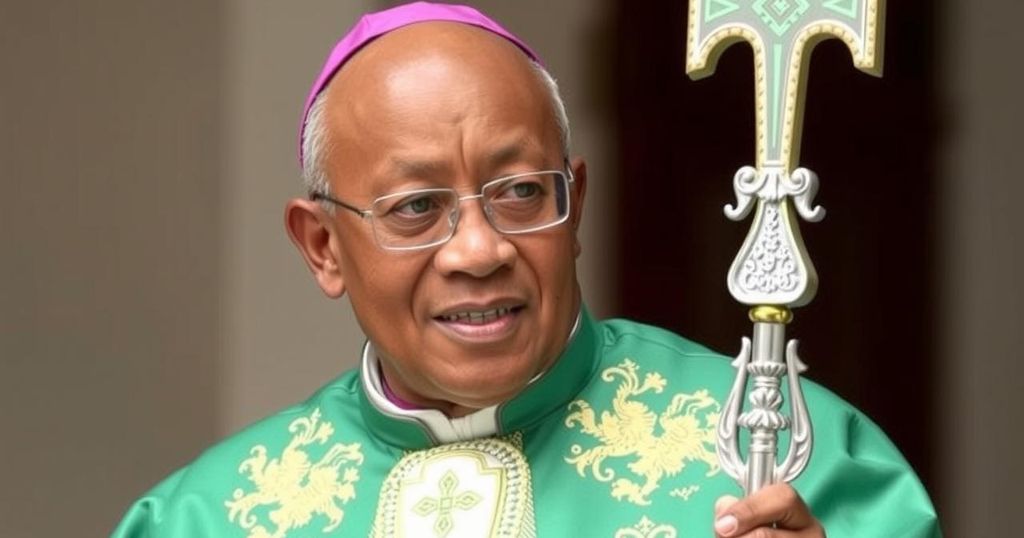Archbishop Samuel Kleda criticized the state of democracy in Cameroon, claiming it exists only nominally. With President Paul Biya preparing for another election amid health concerns and allegations of electoral fraud, demands for electoral reforms are becoming increasingly urgent among political leaders and citizens. Kleda’s statements echo a widespread sentiment of discontent regarding the political landscape and call for a genuine democratic process.
Archbishop Samuel Kleda of Douala has criticized the state of democracy in Cameroon, asserting that it is merely a façade rather than a reality. He expressed his concerns during an interview with local television, Equinox TV, stating that elections are predetermined, as evidenced by the fact that citizens already know the winner before voting occurs. This critique comes at a time when President Paul Biya, the world’s oldest active head of state, prepares for yet another election, despite questions surrounding his health and the integrity of the electoral process.
Since becoming president in 1982, President Biya has been accused of maintaining a de facto one-party system that undermines genuine democratic practices. Despite officially accepting democratic elections in 1992, subsequent elections have been plagued by allegations of fraud and manipulation. Archbishop Kleda specifically challenged the legitimacy of Elections Cameroon (ELECAM), the electoral management body, stating its ties to Biya’s political party compromise its independence. He asserted, “As the saying goes, people don’t organize elections to lose.”
Kleda’s remarks resonate with numerous opposition leaders, such as Prince Ekosso, who advocate for electoral reforms, including lowering the voting age and introducing a single ballot paper. Other political figures have called for significant overhauls in the electoral process, arguing that current systems inflate corruption and disenfranchise voters.
As the nation grapples with pervasive poverty and ongoing regional conflicts, these calls for reform highlight a growing dissatisfaction with Cameroon’s political landscape, which many perceive as stagnant and undemocratic. The clamor for changes to election protocols is seen as vital for ensuring fair and transparent elections that can truly reflect the will of the people. Kleda concluded by emphasizing that if electoral conditions are improved, “we’ll truly see who wins elections in our country.”
Cameroon has long been characterized by challenges related to its political system, with President Paul Biya serving as the longest-serving non-royal leader globally since 1982. The country has witnessed a struggle for genuine democracy, primarily due to Biya’s sustained grip on power and the prevalence of electoral fraud. The legal and institutional frameworks governing elections have been criticized for lacking independence and transparency, fostering an atmosphere of political disenfranchisement. Amidst severe social issues, including poverty, the church, particularly Catholic officials like Archbishop Kleda, has played a pivotal role in advocating for political reform and democratic integrity.
In summary, the discourse surrounding democracy in Cameroon is dominated by skepticism regarding the integrity of electoral processes and the legitimacy of leadership. Archbishop Kleda’s outspoken criticism reflects broader discontent among political leaders and citizens alike. As Cameroon prepares for its upcoming elections, continued calls for reform underscore the urgent need for a reassessment of the electoral mechanisms that currently prevail, in hopes of fostering a more democratic society.
Original Source: cruxnow.com






